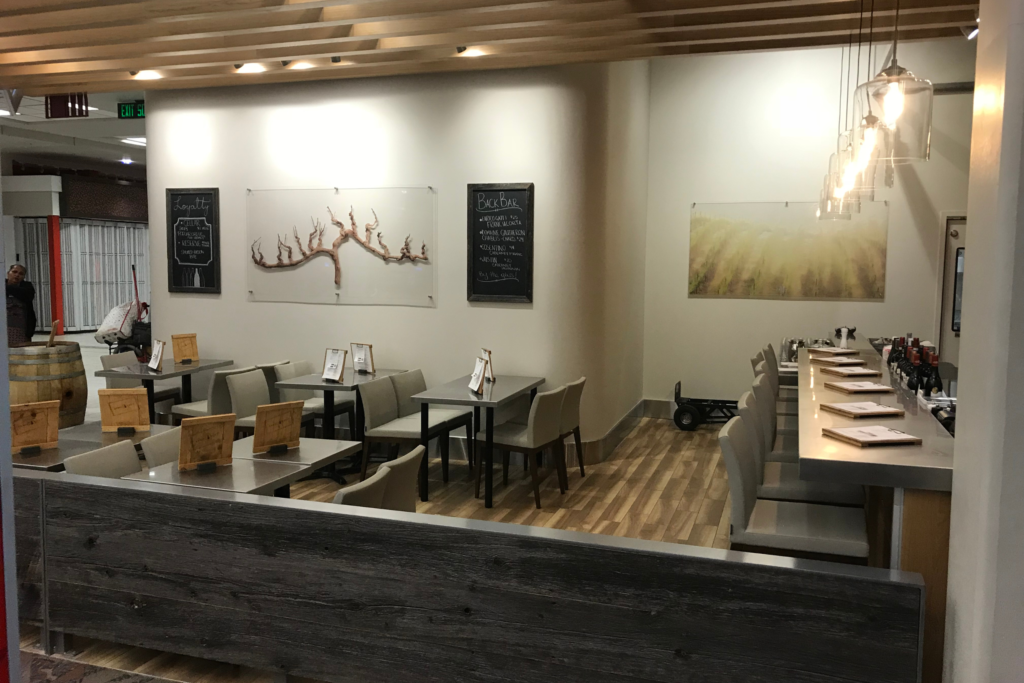Services
Services

Retail Construction
Retail construction refers to the process of building or renovating physical retail spaces such as stores, boutiques, shopping malls, and outlets. This type of construction involves designing and constructing spaces that are specifically tailored to meet the needs of retailers, including features like shelving, display areas, checkout counters, and customer service areas. Retail construction projects often require careful planning to ensure that the space is both functional and visually appealing, as well as compliant with local building codes and regulations.
Restaurant Construction
Restaurant construction refers to the process of building or renovating spaces specifically designed for restaurants. This type of construction involves creating functional and inviting spaces that meet the unique needs of a restaurant, including kitchen layout, dining areas, bar design, and customer flow. Restaurant construction projects often require specialized knowledge and expertise to ensure that the space meets health and safety regulations, as well as the specific requirements of the restaurant owner and chef. This can include features such as ventilation systems, grease traps, and plumbing designed to handle the demands of a commercial kitchen.


Office Construction
Office construction refers to the process of building or renovating spaces specifically designed for office use. This type of construction involves creating functional and efficient workspaces that meet the needs of businesses and their employees. Office construction projects typically include features such as cubicles or open workspaces, conference rooms, reception areas, and break rooms. These spaces are designed to maximize productivity, promote collaboration, and create a comfortable working environment. Office construction projects often require careful planning and attention to detail to ensure that the space meets the needs of the business while also complying with building codes and regulations.
General Contracting
General contracting is a practice within the construction industry where a general contractor is responsible for the day-to-day oversight of a construction site, management of vendors and trades, and communication of information to all involved parties throughout the course of a building project. The general contractor is typically hired by the client and is responsible for providing all of the material, labor, equipment (such as engineering vehicles and tools) and services necessary for the construction of the project. The general contractor may also hire specialized subcontractors to perform portions of the construction work. The general contractor acts as the manager of the entire construction project, ensuring that it is completed on time and within budget.
Site Management
Construction site management involves overseeing the operations of a construction site, ensuring that work is completed safely, on time, and within budget. Site managers are responsible for coordinating and supervising construction workers, subcontractors, and suppliers, as well as ensuring that all work is carried out according to the project plans and specifications. They are also responsible for managing the site’s budget and schedule, ordering materials, and ensuring that all necessary permits and licenses are obtained. Additionally, site managers are responsible for ensuring that all health and safety regulations are followed on the site and that any issues or delays are addressed promptly.
Pre-Construction
Pre-construction is the phase of a construction project that occurs before the actual building work begins. It involves planning, budgeting, and preparing for the construction process. During the pre-construction phase, key activities include:
- Project conception: Defining the scope, objectives, and requirements of the project.
- Feasibility study: Assessing the viability of the project, including site analysis and cost estimation.
- Design development: Developing the architectural and engineering designs, including detailed drawings and specifications.
- Permitting and approvals: Obtaining necessary permits and approvals from local authorities.
- Budgeting and cost estimation: Developing a detailed budget and cost estimate for the project.
